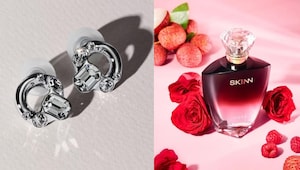What does it mean to be gynesexual?
Everything you need to know about this identity.

Thanks to the LGBTQIA+ movement, there’s a place for all under the wide umbrella of attractions, sexual orientations, and identities. One such term, that is going around, is gynesexuality. Simply put, the term refers to people who are attracted to “feminine” qualities, regardless of gender. But it’s much more than that and today, we are going to delve deeper into this identity to better understand its place in the broader landscape of sexual orientation.
What is it?
Do you identify as gynesexual?
Think about your past relationships
Take a moment to think about your previous partners and their traits that attracted you most. If you find that your partners have consistently exhibited feminine energy, regardless of their gender, and these qualities have played an important role in your attraction towards them, this might suggest that gynesexuality aligns with your experiences.
Additionally, think about whether your emotional and romantic connections are influenced by these feminine attributes. If you feel a strong connection to this pattern, it could indicate that the label “gynesexual” is a good fit for your identity. But as mentioned before, remember that exploring and understanding your attractions is a personal journey, and it’s perfectly okay for your self-identification to evolve with time.
Reflect on your past sexual encounters as well. If your partners predominantly exhibit feminine traits, this may indicate your attraction to femininity and influence your relationship preferences. Understanding these patterns can provide deeper self-awareness.
Consider your comfort with the term
Think about how comfortable you feel with labelling yourself as gynesexual or any other term. Take the time to explore your preferences and understand what resonates with you personally. This process doesn’t need to be rushed—your self-discovery and the labels you choose can evolve and change over time.
In the end, it is all about embracing the fluidity of sexual identity and allowing yourself the freedom to define and define your self-identification as you go on about life.
Lead image credit: Pexels
Also read: Zodiac signs who have the hardest time after a breakup
Also read: Comforting movies to snuggle up with on a rainy day
more from Life

How training for a marathon became the most honest conversation I have ever had with myself

Emily in Paris season 5 is back—and we’re still hate-watching every minute of it

“Pebbling” is the non-toxic, genuinely adorable dating trend we all needed

Is 'future faking' the new gaslighting? Decoding this new dating trend

Bad at gifting? Check out these stocking stuffer ideas based on each zodiac sign

15 new Christmas movies you might want to add to your 2025 holiday watch list

Why glycolic acid is your skin's best friend for the winter season

Women have long been having sex on the first date—so why do some of us still feel shamed?

The 'shixie' is a modern take on the 70s shag haircut: 10 style ideas and how to wear the trending look

Why blush balms are the low-effort glow stick for fuss-free radiance
